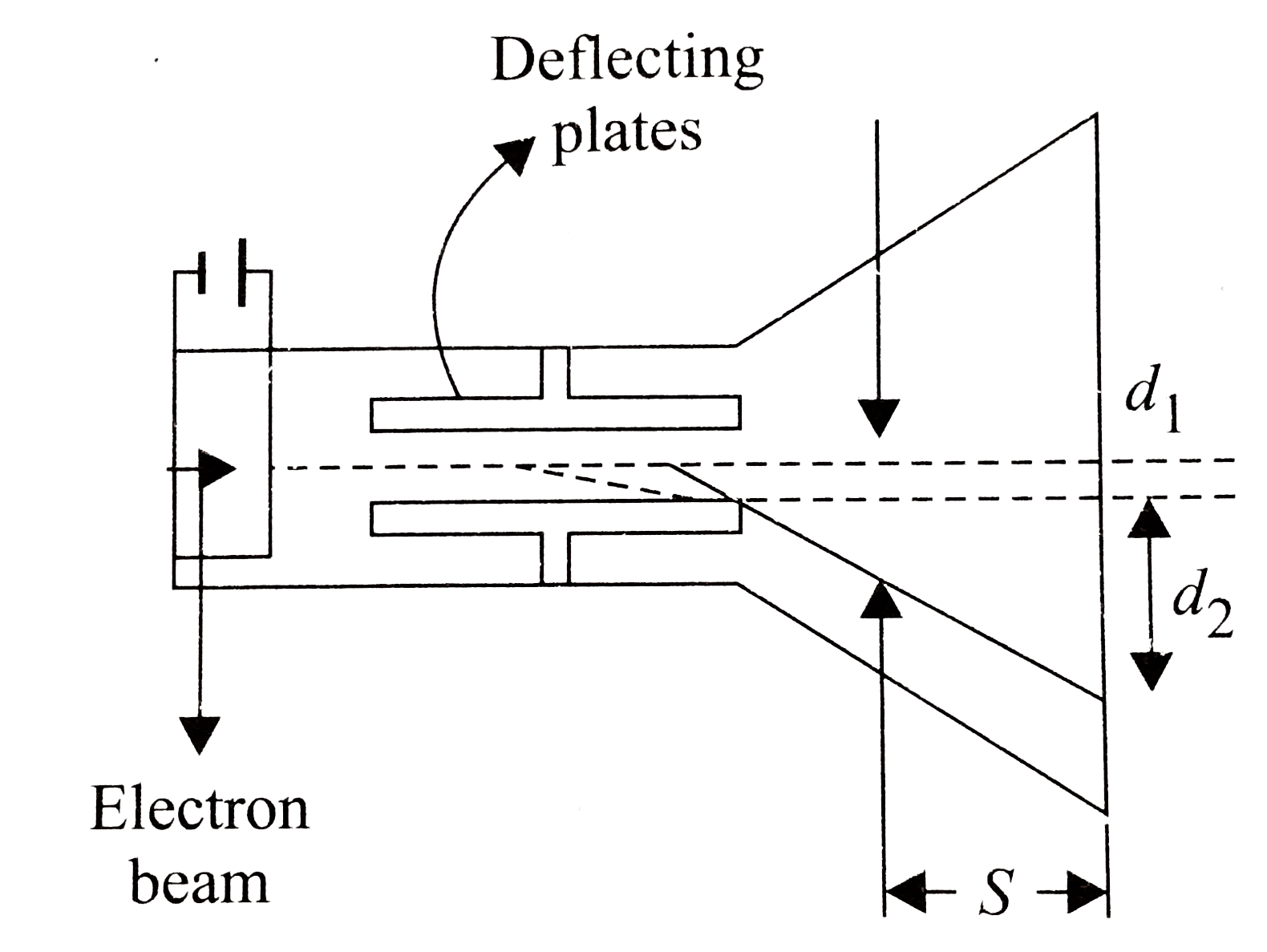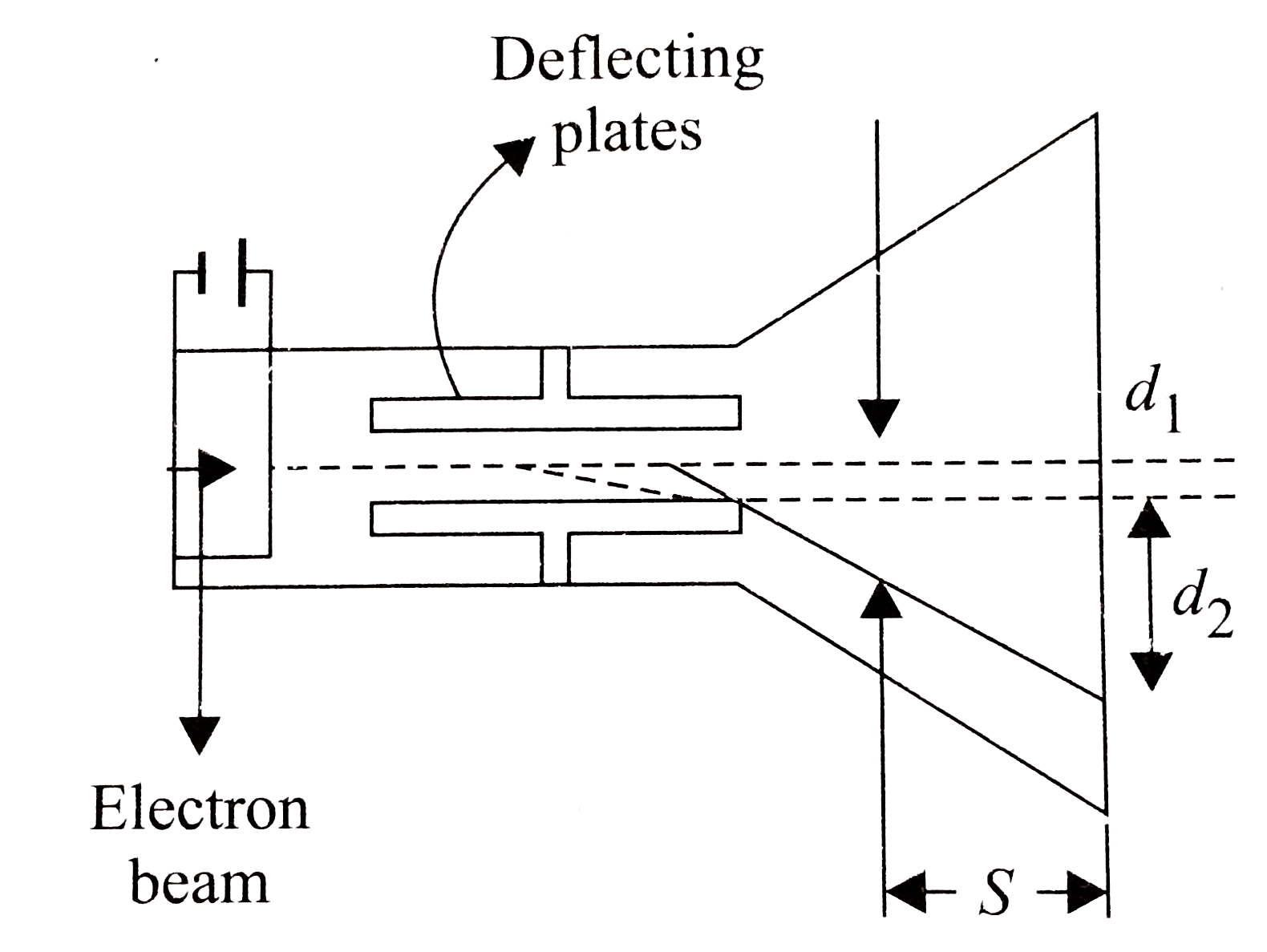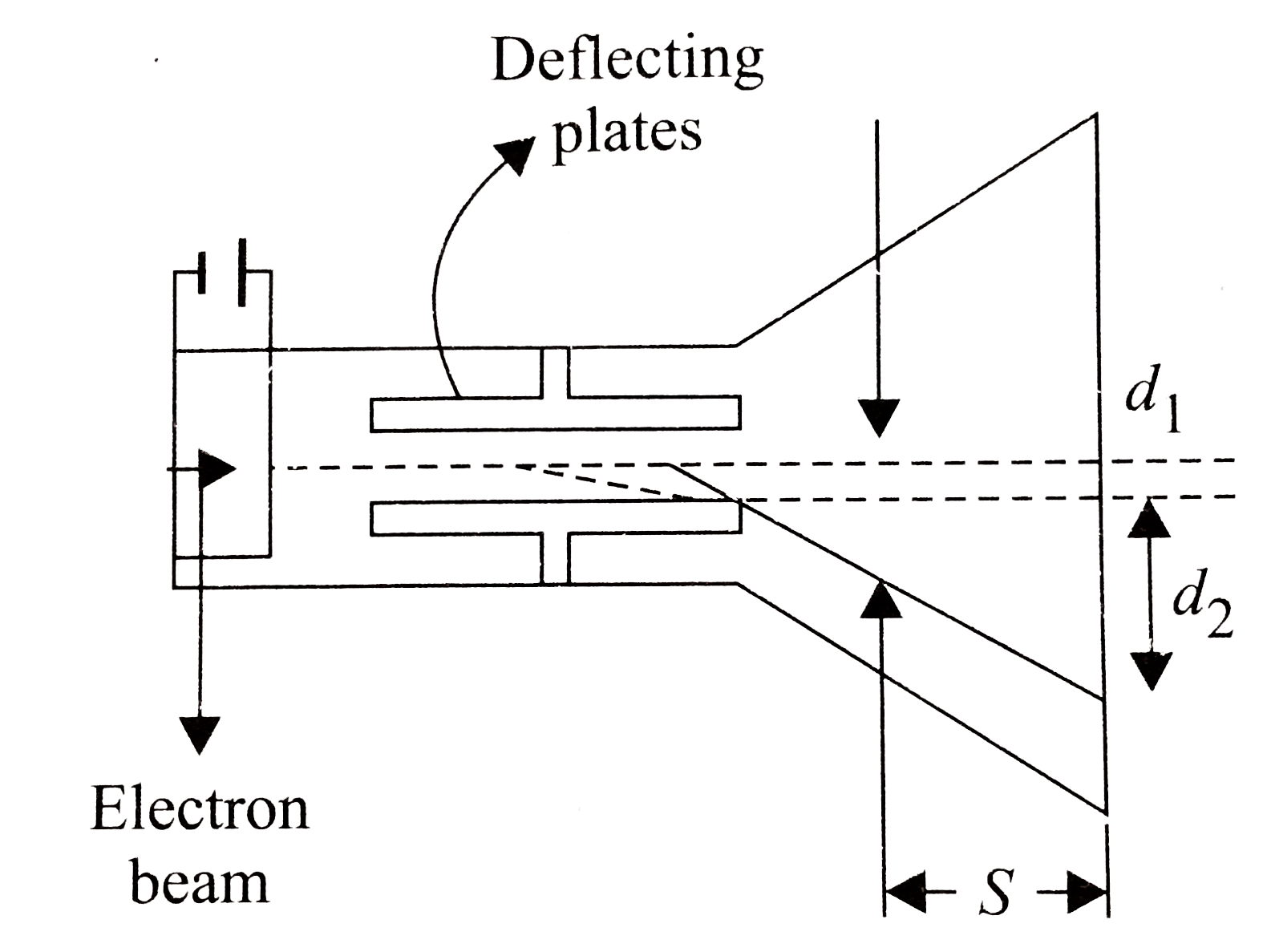Following experiment was performed by J.J. Thomson in order to measure ratio of charge e and mass m of electron.

Electrons emitted from a hot filament are accelerated by a potential difference V. As the electrons pass through deflecting plates, they encounter both electric and magnetic fields. the entire region in which electrons leave the plates they enters a field free region that extends to fluorescent screen. The entire region in which electrons travel is evacuated.
Firstly, electric and magnetic fields were made zero and position of undeflected electron beam on the screen was noted. The electric field was turned on and resulting deflection was noted. Deflection is given by d1=eEL22mV2 where L = length of deflecting plate and v = speed of electron.
In second part of experiment, magnetic field was adjusted so as to exactly cancel the electric force leaving the electron beam undeflected. This gives eE=evB. Using expression for d1 we can find out em=2d1EB2L2
A beam of electron with velocity 3×107ms−1 is deflected 2 mm while passing through 10 cm in an electric field of 1800V/m perpendicular to its path. e/m for electron is
1.5×1011Ckg−1
2×1011Ckg−1
2.5×1011Ckg−1
3×1011Ckg−1
The correct Answer is:B
Since d1=eEL22mv2orem=2d1v2EL2
Here d1=2×10−3m
v=3×107m/sL=0.1m
E=1800V/m
em=2×(2×10−3)×(3×107)21800×(0.1)2=2×1011C/kg.
Hence choice (b) is correct.
Topper's Solved these Questions
- MISCELLANEOUS VOLUME 5BOOK - CENGAGE PHYSICSCHAPTER - MISCELLANEOUS VOLUME 5EXERCISE - Integer
12 Videos
- MISCELLANEOUS VOLUME 5BOOK - CENGAGE PHYSICSCHAPTER - MISCELLANEOUS VOLUME 5EXERCISE - Multiple Correct
34 Videos
- MISCELLANEOUS VOLUME 3BOOK - CENGAGE PHYSICSCHAPTER - MISCELLANEOUS VOLUME 3EXERCISE - True and False
3 Videos
- Moving charges and magnetismBOOK - CENGAGE PHYSICSCHAPTER - Moving charges and magnetismEXERCISE - Question Bank
20 Videos
Similar Questions
Knowledge Check
Following experiment was performed by J.J. Thomson in order to measure ratio of charge e and mass m of electron.

Electrons emitted from a hot filament are accelerated by a potential difference V. As the electrons pass through deflecting plates, they encounter both electric and magnetic fields. the entire region in which electrons leave the plates they enters a field free region that extends to fluorescent screen. The entire region in which electrons travel is evacuated.
Firstly, electric and magnetic fields were made zero and position of undeflected electron beam on the screen was noted. The electric field was turned on and resulting deflection was noted. Deflection is given by d1=eEL22mV2 where L = length of deflecting plate and v = speed of electron.
In second part of experiment, magnetic field was adjusted so as to exactly cancel the electric force leaving the electron beam undeflected. This gives eE=evB. Using expression for d1 we can find out em=2d1EB2L2
If the electron speed were doubled by increasing the potential differece V, which of the following would be true in order to correctly measure e/mAMagnetic field would have to be halvedBMagnetic field would have to be doubledCLength L of the plates would have to be doubledDLength L of the plates would have to be halvedFollowing experiment was performed by J.J. Thomson in order to measure ratio of charge e and mass m of electron.

Electrons emitted from a hot filament are accelerated by a potential difference V. As the electrons pass through deflecting plates, they encounter both electric and magnetic fields. the entire region in which electrons leave the plates they enters a field free region that extends to fluorescent screen. The entire region in which electrons travel is evacuated.
Firstly, electric and magnetic fields were made zero and position of undeflected electron beam on the screen was noted. The electric field was turned on and resulting deflection was noted. Deflection is given by d1=eEL22mV2 where L = length of deflecting plate and v = speed of electron.
In second part of experiment, magnetic field was adjusted so as to exactly cancel the electric force leaving the electron beam undeflected. This gives eE = evB. Using expression for d1 we can find out em=2d1EB2L2
If the electron is deflected downward when only electric field is turned on, in what direction do the electric and magnetic fields point in second part of experimentAThe electric field point to the top, while the magnetic field point into the pageBThe electric field point to the top, while the magnetic field point out of pageCElectric field points to the bottom, while the magnetic field point out of pateDElectric field points to the bottom, while the magnetic field points into the pageThe direction of a cathode ray particle passing through a magnetic field can by found by
AFleming's left hand ruleBLaplace's lawCMaxwell's cork screw ruleDAmpere's rule
The mass of an electron is m, charge is e and it is accelerated form rest through a potential difference of V volts. The velocity acquired by electron will be :
View SolutionA beam of electrons passes undeflected through mutually perpendicular electric and magnetic fields. If the electric field is switched off, and the same magnetic field is maintained, the electrons move
View SolutionA beam of electrons passes undeflected through mutually perpendicular electric and magnetic fields. If the electric field is switched off, and the same magnetic field is maintained, the electrons move
View SolutionThe mass of an electron is m, charge is e and it is accelerated from rest through a potential difference of V volts. The velocity acquired by electron will be
View SolutionElectron at rest are accelerated by a potential of V volt. These electrons enter the region of space having a uniform, perpendicular magnetic induction field B. the radius of the path of the electrons inside the magnetic field is
View Solution
